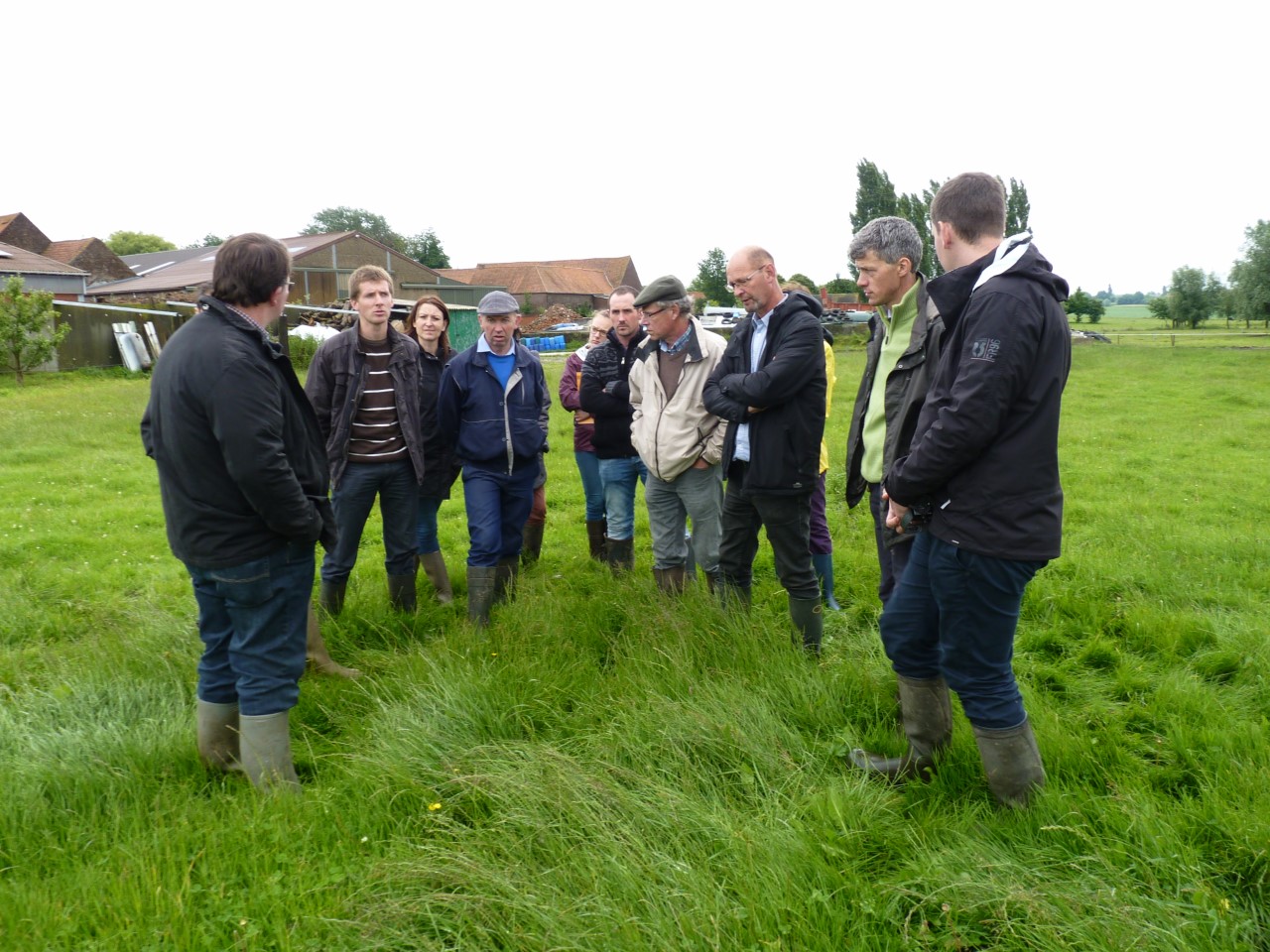Case Study
Grass and Forage Autonomy Working Group
Contact name
Hervé Lust (Pays des Collines Natural Park); Audrey Polard (Plains of the Scheldt Natural Park) and Aurore Dlugon (Regional Scarpe Escaut -France Natural Park)
Institution name
Pays des Collines Nature Park, Plaines de L'Escaut Nature Park and Regional Scarpe Escaut Nature Park
Region & country
Territories of the Natural Parks of the Pays des Collines et des Plaines de l'Escaut (Wallonia-Belgium). As well as the territory of the Regional Scarpe Escaut Natural Park (Nord France)
Summary
The food autonomy of a farm was more and more sought after by the breeders in view of the increasing costs of concentrated feed.
The search for the autonomy of a farm must necessarily be integrated into the overall reflection that the farmer leads at the level of his farm.
For this, it was necessary to mentor the farmers.
To this end, in 2010, a working group was set up and is managed by the Pays des Collines Nature Park, the Plaines de l’Escaut Nature Park and the Scarpe – Escaut Regional Nature Park (France). This working group is open to all farmers, whether or not already engaged in a process that tends towards the fodder autonomy of their farms.

"Grass and Forage Autonomy Group" outing
Scheldt Plains Nature Park
Background of the project
The farmer faced the following problems:
– Increasing costs of concentrated feeds
– Difficulty producing a forage that combines grasses and legumes
– Lack of technical knowledge concerning legumes (sowing, harvesting,…)
– Lack of forage production during dry years
– Lack of technical knowledge in relation to meadows, grass in general…
– Difficulty in finding a competent speaker in fodder autonomy
– Lack of technical knowledge in relation to meadows, grass in general …
– Search for competent speakers in fodder autonomy
– What are the best grass-legume combinations?
– How to secure your fodder stocks? What about dry years?
Solution and actions taken
In 2010, a working group was set up and is managed by the Pays des Collines Nature Park, the Plaines de l’Escaut Nature Park and the Scarpe – Escaut Regional Nature Park (France). This working group is open to all farmers, whether or not already engaged in a process that tends towards the fodder autonomy of their farms. Today, the group is made up of 80 Belgian members. This working group is supported by the European Interreg Ecorurable project and the Walloon Region.
Each year, various outings, meetings and training sessions are organized in order to facilitate the exchange of experiences between farmers (constitution of a network), to restore economic value to grass (in addition to environmental and societal aspects), to promote personalized technical advice for breeders and discussions with professionals, etc. Breeders were trained and informed on various topics by specialists.
Other institutions or parties involved
Partners:
– Pays des Collines Natural Park
– Plains of the Scheldt Nature Park
– Scarpe Regional Nature Park – Escaut (France)
Other organizations:
– SPW
– Better Forages
– Carah ASBL
– Agricultural unions (FUGEA, …)
– Biowallonia
– Haut de France Chamber of Agriculture
– GNIS
-…
Results
First observation: more farmers who are members of our Working Group. In 2010, we had 20 member farmers. In 2020, we reach 80 members at the level of Belgian farmers.
More and more farmers are asking questions about fodder autonomy …
Many farmers have questions about forage production in dry years.
A summary of each outing, conference is produced and sent to all participants
Challenges
The participating farmers (the most present) in the conferences are the most motivated and already active farmers in the field of fodder autonomy.
Difficulty extending the approach to new farmers.
Difficulty working with living things and with the climate
Difficulty for the breeder to make a change without personalized follow-up
Lessons learned
-Difficulty to change the ideas of farmers
– We must not give up
– Organize conferences, outings during off-peak periods for farmers (apart from heavy work in the fields, …)
– Avoid big speeches and favor field trips
– Promote exchanges between peers
– For 3 years, we have noticed that the climate is increasingly drier, need to find means of producing fodder … To be continued …
Other resources
Contact name
Hervé Lust (Pays des Collines Natural Park); Audrey Polard (Plains of the Scheldt Natural Park) and Aurore Dlugon (Regional Scarpe Escaut -France Natural Park)
Institution name
Pays des Collines Nature Park, Plaines de L'Escaut Nature Park and Regional Scarpe Escaut Nature Park